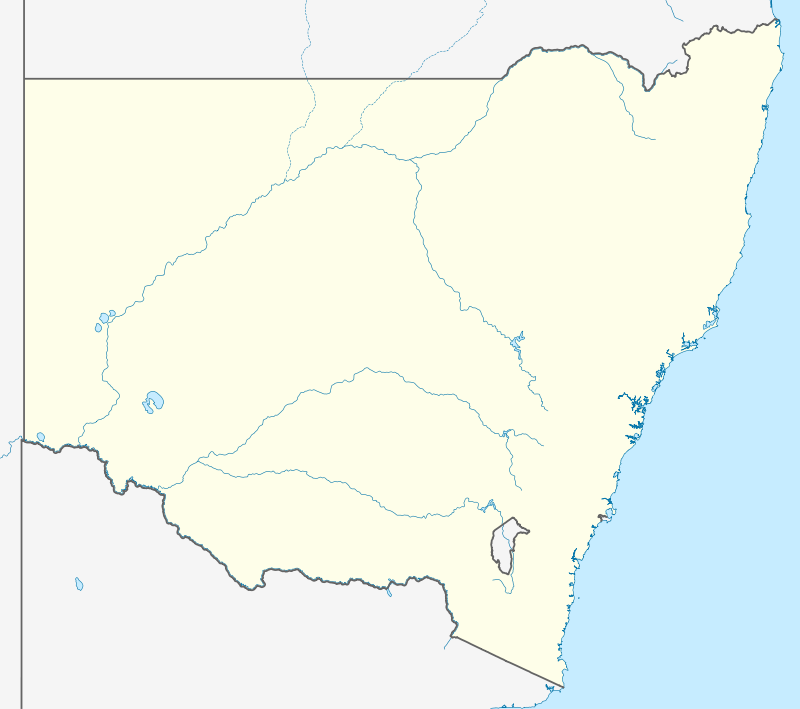Tambar Springs, New South Wales
Tambar Springs is a town in the North West Slopes region of New South Wales, Australia. At the 2016 census, Tambar Springs and the surrounding area had a population of 187.[1]
| Tambar Springs New South Wales | |
|---|---|
War memorial, claimed to be the first World War I memorial in New South Wales | |
 Tambar Springs | |
| Coordinates | 31°21′0″S 149°50′0″E |
| Population | 187 (2016 census)[1] |
| Postcode(s) | 2381 |
| Location | |
| LGA(s) | Gunnedah Shire Council |
| State electorate(s) | Tamworth |
| Federal Division(s) | Parkes, New England |
Geography
The town is in the Gunnedah Shire Council local government area, 417 kilometres (259 mi) north west of the state capital, Sydney.
History
Tambar Springs was opened up for grazing in the 1830s. Closer settlement began in 1868 and the village was proclaimed twenty years later in 1888.[2]
The Tambar Springs war memorial was erected in December 1918 at a total cost of £400. It is thought to be the first World War I memorial built in New South Wales.[3]
In addition, Tambar Springs also had the largest number of men per capita enlisted in the Australian Army, over both world wars.
Fossils
Nearby Tambar Springs is a significant palaeontology site; a typical Pleistocene assemblage. Between 1979 and 1984, the Australian Museum excavated a complete Diprotodon skeleton as well as a pelvis and femur.[4]
- Anglican Church
- Community Hall
- General Store
- Catholic Church
- Royal Hotel
References
- Australian Bureau of Statistics (27 June 2017). "Tambar Springs (State Suburb)". 2016 Census QuickStats. Retrieved 1 January 2020.

- "Tambar Springs, New South Wales". AboutAustralia.com.su. Archived from the original on 28 September 2011. Retrieved 11 January 2009.
- McLean, Ron (11 November 2001). "Battle still raged as village paid homage" (PDF). Namoi Valley Independent. Namoi Valle. Archived from the original (PDF) on 27 July 2008. Retrieved 11 January 2009.
- "Tambar Springs Palaeontological Site, Mullaley Rd, Tambar Springs, NSW, Australia (Place ID 103557)". Australian Heritage Database. Department of the Environment. Retrieved 11 January 2009.